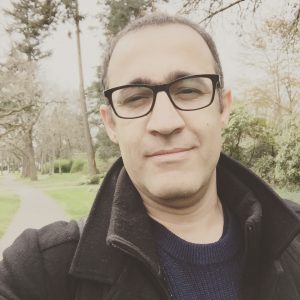By Hossein Ghanbari (Odivi)
Whether it is a prescriptive or descriptive approach, grammar has proved to be an indispensable part of language learning and acquisition. Grammar is defined as a set of forms/rules for how words are put together to form phrases, clauses, and meaning in a language. For instance, in an English sentence, the subject usually comes first, followed by the verb and the object while it is subject, object, and verb in a Japanese sentence. Thus, having a knowledge of grammar helps build clear and comprehensible sentences.
When I started my journey as a learner of English, I bet my teachers did not even consider not emphasizing the importance of making grammatical structures. They would rather go to great extents to make sure their students had followed the rules to craft grammatical sentences, the prescriptive approach of grammar teaching. It must have been an achievement on their part when we had learned “simple present” and “simple past” tenses, to name a few. On the other hand, it is also believed that grammar should be learned and taught as it is used by its native speakers, the descriptive approach of grammar teaching. As the proponents of each approach advocate their favourite philosophy of grammar, I would like to slightly change the discussion and state that these two approaches are different and should be kept that way.
Prescriptive grammarians present various reasons about the importance of grammar in learning and teaching languages. So, it is typical to hear that grammar shows how to make comprehensible and acceptable sentences and bad grammar could mean lack of a proper education. Having said that, learning and following grammar is not always easy. This resonates with many writers who write for academic purposes as they must follow the rubrics of academic writing; formal and grammatical sentences. Descriptivist grammarians, on the other hand, argue in favour of learning a language based on how it is used. They focus on how a language is and how it is used by a native speaker of that language, and not how they should go about producing that. In other words, they describe how it is and not how it should be.
In my personal life, I would travel to the touristy area in my hometown and would look for a willing tourist to speak with me so that I could improve my “Spoken English.” It was then that I appreciated how different these two variations of English are, spoken and written/formal English. That is because my tourist friends seemed reluctant to follow the rules of English grammar as much as I expected them to. What should I have done? Should I put on my wise glasses and reminded them of their grammar errors and mistakes? Well, guess what? I did not!
With that being said, I would like to say that although no variation of a language is better than the other, some of these other forms are not used in academia, unless for specific reasons. As university graduates and students, we have heard that writing grammatically is important because grammar helps writers to write comprehensibly and be assessed accordingly. I mean, anyone in academia can attest to the times they had to write and re-write their work to make sure it follows the grammatical rules. However, what if no one follows the rigid set of rules for pluralizing nouns in English, for instance. One of the consequences of that would be an array of different forms crafted at the whim of their authors, which at the same time may confuse and fail readers to follow their authors’ messages. At the same time, one may wonder what the point of writing would be if no one could read your mind because you wished to voluntarily walk away from the writing rules. Thus, rules in general and grammar rules in particular provide guidance for readers to follow your thoughts and respond to them appropriately.
To wrap up, I would like to reiterate that there are two distinct approaches toward teaching and learning grammar, prescriptive and descriptive. While proponents of these two philosophies advocate their approach of choice, perhaps they should consider looking away from this dichotomy to see the differences of each approach and the appropriate contexts in which they are accepted.
Hi. My name is Odivi. I recently graduated from my PhD in Educational Studies here at the University of Victoria. My dissertation topic was on the concept of success in language revitalization program for the W̱ŚÁNEĆ community. Before that, I wrote my MA thesis on the study of moves and steps in Farsi and English Academic Recommendation Letters.
I am passionate about language teaching, language revitalization, and writing. Before I came to Canada, I had been living in Turkey and Iran, where I taught TEFL/TESOL to non-native speakers of English. Here at the CAC, I help students with their sentence structure, paragraph development, and grammar.
